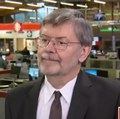WATCH THE VIDEO: “The Partnership for Water Sustainability has its roots in government – provincial, federal, and most importantly, local government. Over three decades, the Partnership has evolved – from a technical committee in the 1990s,to a water roundtable in the first decade of the 2000s, to a legal entity in 2010,” stated Kim Stephens, Partnership Executive Director, in his remarks as part of the Bowen Island Climate Conversation (July 2021)

“Incorporation of the Partnership for Water Sustainability as a non-profit society allows us to carry on the Living Water Smart mission. We are growing a network, not building an organization. In terms of my professional career as a water resource engineer and planner, I have been in the right place at the right time, and with the right people. In a nutshell, my responsibilities revolve around delivering the Water Sustainability Action Plan through partnerships and collaboration, through a local government network,” stated Kim Stephens.










